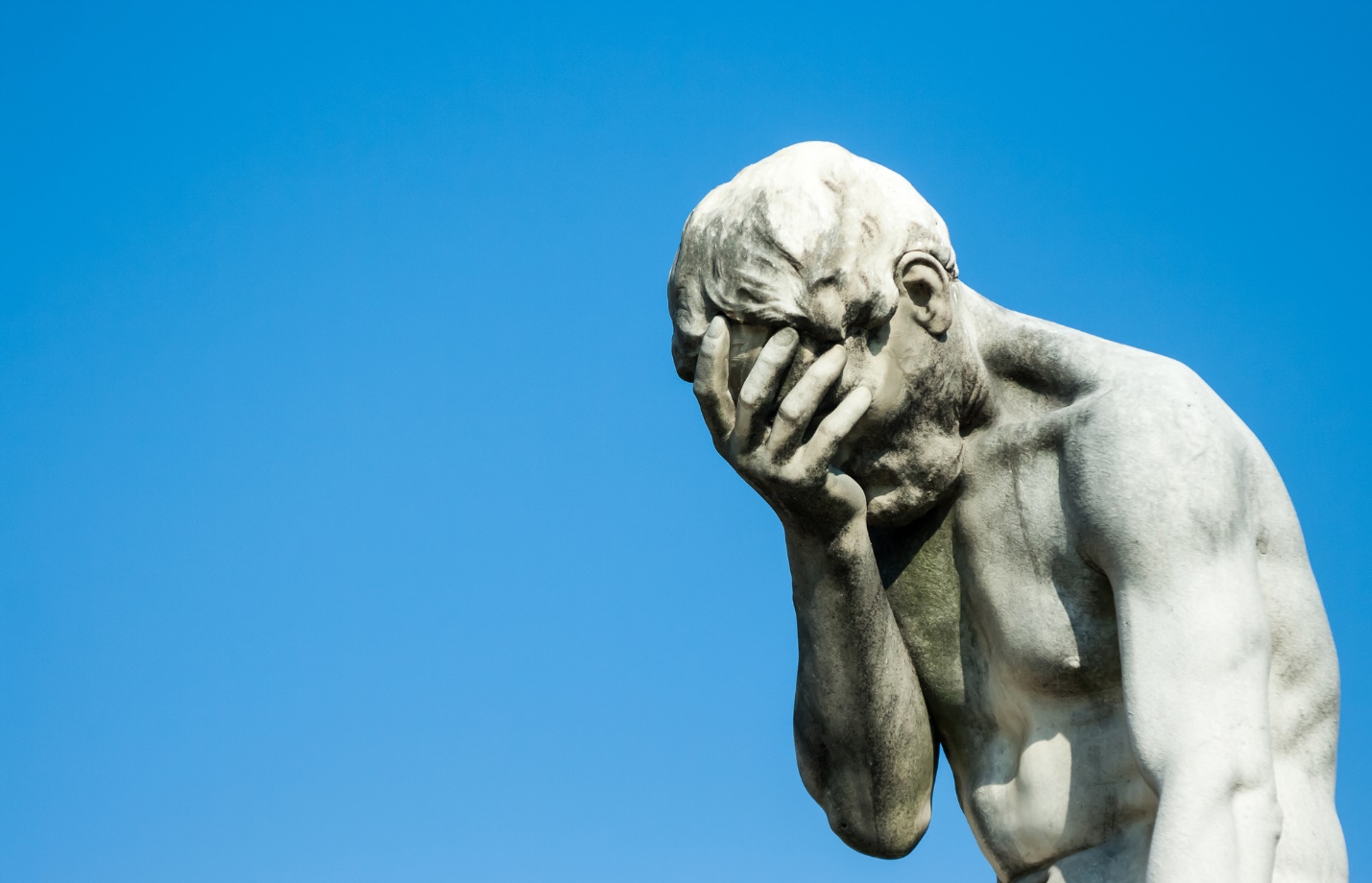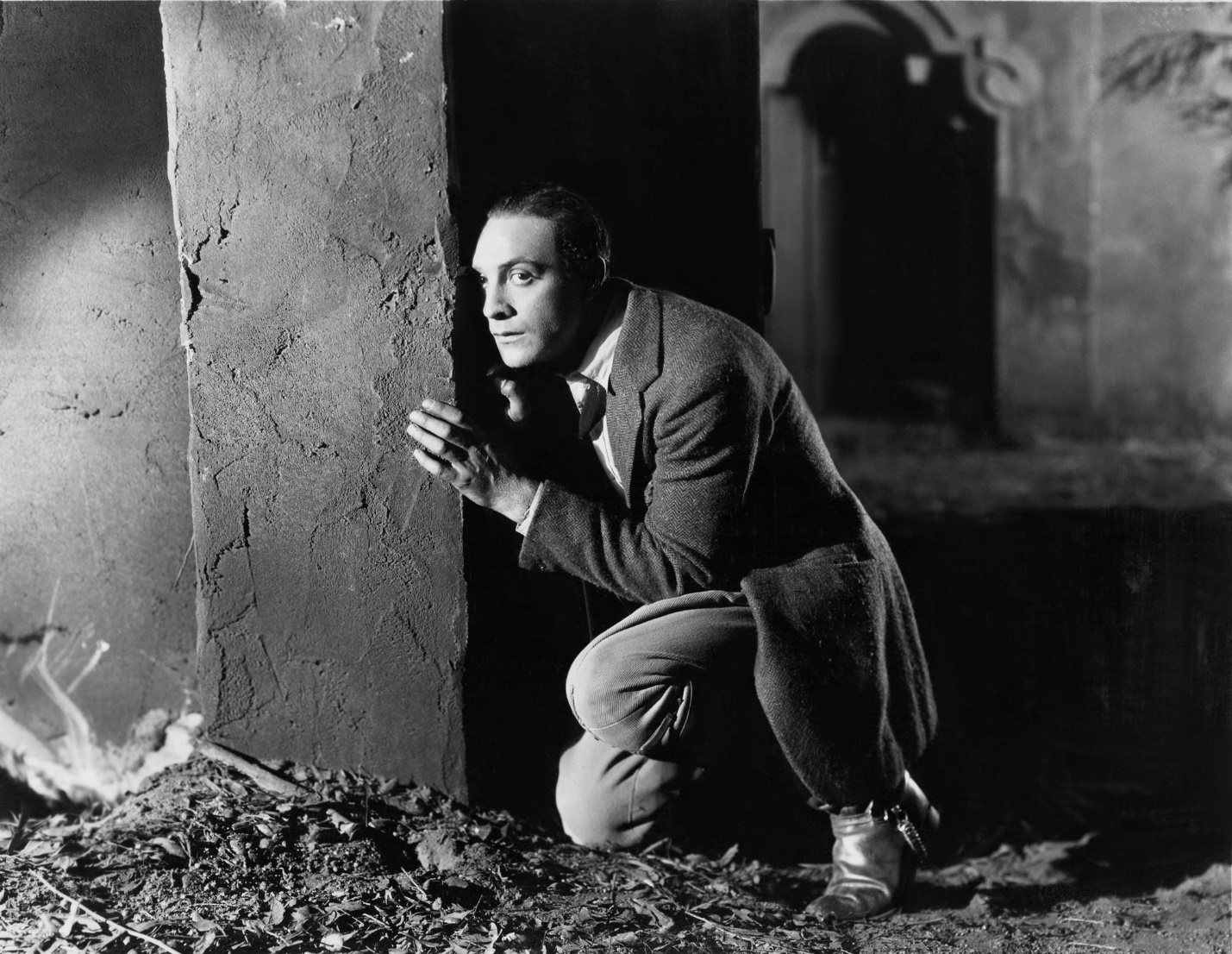BP 159

According to God’s book, men and women are born in sin. They enter this world possessed by a sin nature with a natural ongoing propensity for sin and disobedience and rebellion. As they practice the sin nature, it gives birth to guilt and shame for transgressing a divine boundary (violating God’s law). Every person is left with a dilemma, then: apart from a divine cleansing, one must personally manage their badness (shame and separation from God) through denial, through minimizing the badness by rationalizing that everyone experiences the same plight, by projecting it onto others and seeing the sin in them or, in the worst-case scenario, by abandoning oneself to sin and shame and even glorying in it.
Concerning the abandonment to sin, Paul writes in Philippians, “For many, of whom I have often told you and now tell you even with tears, walk as enemies of the cross of Christ. Their end is destruction, their god is their belly, and they glory in their shame, with minds set on earthly things” ~ 3:19. Yes, there are those who will deal with their sin and subsequent guilt, shame, and badness by taking pride in it and accusing those who practice righteousness as the evil ones.
Do you remember Isaiah 5:20,21? The prophet writes,
“Woe to those who call evil good
and good evil,
who put darkness for light
and light for darkness,
who put bitter for sweet
and sweet for bitter!
Woe to those who are wise in their own eyes,
and shrewd in their own sight!”
One way to cope with the guilt and shame that results from rebellion against God is to make a paradigm shift in your heart and brain that relativizes morality, that leads to the belief that what is bad is righteous and to be practiced, and what is good is hateful and to be shunned. In other words, there are those who will rewrite God’s word (ultimate reality) to say what they want it to say so they can create their own version of reality.
Another way to say it is that when humans (especially unbelievers?) feel the shame that results from going against God’s loving commandments, they must find a way to shake off the shame or to hide it from God, others, and maybe most of all, from their own selves. Here we see the denial at play.
Weeks ago, DTFL focused on how Christians are like frogs—specifically, they are amphibians that are capable of living in two worlds (material and spiritual, physical, and metaphysical) unlike fish that can only live in water and most mammals that can only live on land. Today’s post will focus not on frogs or Christians specifically, but on how all humans are similar to clams. The Cambridge Dictionary defines a clam as “a type of sea creature with a shell in two parts that can close together tightly . . .”

The main point here is that humans run and hide (like clams) when they feel a sense of badness (shame and guilt). They attempt to flee from the presence of God and others and seek some type of isolating safety that protects them from being seen, hurt, exposed, or rejected. (As was mentioned above, there are those, of course, who will embrace their sin and shame and even glory in it instead of feeling bad and hiding. These individuals have totally forsaken God and conviction and abandoned themselves to evil, pride, and the passions of the flesh. They are in a very dangerous existence.)
Secular authors Merle A. Fossum and Marilyn J. Mason have written an intriguing book entitled, Facing Shame. In their book they make an observation about a couple they are working with who are struggling with shame: “Their individual feelings of shame were not prominent in their awareness because they had fulfilled the dominant culture’s recipe for success. This shell of apparent success covered an underlying sense of being undeveloped and diminished as persons” ~ p 6.
In the estimation of Fossum and Mason, humans who come from shame-bound family systems find ways to use the shell of success to cover or shield themselves from feelings of shame. One way they hide from the status and/or feeling of badness is by performing, making themselves good according to cultural standards (or possibly their own standards). A state of feeling good can go a long way to not feeling bad.
In a totally different context, Heinz Kohut in his study of the self writes that when humans feel that their selves are not seen, loved, or good enough to be esteemed, they will develop compensatory behaviors in an attempt to make themselves good enough. They might become the best at a specific sport, strive for a high GPA in academics, climb the ladder in the work world, or even exhaust themselves serving God as a means to undue their deep sense of not being good enough, feeling unlovable, experiencing deep shame. Performance is the shell that covers the shame. Doing becomes the mechanism of hiding that might, on a good day, help the individual escape from badness and/or a deep sense of inadequacy.
My thought here is that oftentimes feelings of inferiority, not being good enough, being less than others, trying harder, striving to be perfect, workaholism, all flow from a deep sense of guilt and shame that comes from sensing that one is not enough.
From a spiritual perspective, these compensatory behaviors flow from one of two things, namely, a true shame that comes from sinning against God and living separate from His love and forgiveness, or a false shame that comes from Satan who accuses, attacks, lies to, and generally strives to make men and women feel bad and unlovable even if they are saved and walking with God.
So, as we have discussed in other posts, shame can be true, or it can be false. There is godly sorrow that is true, and there is Satanic annihilation that is false. Both shames—true and false—demand a resolution. One can deal with them alone or with the assistance of God who makes bad people not just good but righteous.
Fossum and Mason also refer to the control and release cycle in their discussion of shame. An example of this cycle is Brianna who struggles with episodes of pornography. Whenever she falls into an intense addictive season where she views pornography for hours as if in a trance from which she cannot escape, she feels extreme guilt and shame.

“After each event [Brianna] felt extremely shameful and self-hating and promised [herself] that [she] would never again engage in this behavior. Then [she] returned to [her] controlled and socially acceptable life. In effect, [she] lived a double life, one of which was controlled and ‘on the record’ and a secret life which was out of control and ‘off the record’” p 105.
Fossum and Mason go on to say, “The shame and fear [she] felt after each episode further intensified [her] fervor in controlling all aspects of [her] experience. Overtly, [she] threw [herself] into working harder, longer hours, demanding more of [herself] and [her] colleagues . . . The tortured tension [she] lived with was between the control that [she] consciously willed and the release from control which [she] found in the sexual excitement . . .” pp 105-106.
Brianna came to hate the release phase of the cycle because she felt bad about her behaviors (sin) and it produced within her an intense shame that led her to hide her true self from others and instead manufacture a persona that looked perfect and good on the outside. She also came to hate the control phase of the cycle because it was like living with a rigid parent who was always scrutinizing her and telling her what to do and what not to do.
Everything about the cycle was distasteful to Brianna. But what was her option for escape? She kept releasing and controlling, releasing and controlling—practicing her addiction that triggered a strong sense of shame followed by strict seasons of being good to counter the feelings of badness.
Fossum and Mason go on to say that, “Shame makes the control dynamic more rigidly demanding and unforgiving and the release dynamic more self-destructive. The more intensely one controls, the more one requires the balance of release, and the more abusively or self-destructively one releases, the more intensely one requires control” p 106.
Satan loves the release-shame cycle that is fueled by sin and shame. He has accomplished his purpose when we sin, then experience false shame (true shame is dangerous to darkness but it might drive us to God for help), and, finally, compensate (try to make ourselves good or at least not to feel bad) by being good.

I suppose the medieval practice of self-flagellation with a whip would fall somewhere under this practice of compensating. People can feel less badness both if they punish themselves and if they do good things to make themselves subjectively feel better. Have you ever wondered why some people work out so hard? Some of them might be sweating out their badness and shame.
So, what is a man or woman to do instead of self-scourging or compensating (or projecting or denying)?
The gospel of Jesus Christ is a far better solution to the problem of sin, shame, and not being good enough than our own efforts to undo our badness or to make ourselves good through control. Yes, the gospel tells us the bad news that we are sinners who are full of a sense of objective and subjective badness and shame. But it also tells us the amazingly good news that God has provided a way to deliver us from shame (both true and false shame) not by our fruitless efforts but by His perfect intervention.
Have you heard of that foreign concept called grace? G.R.A.C.E. – God’s Riches At Christ’s Expense. Through the sacrificial death of Jesus, God cleanses us from sin and shame and gives us Jesus’ goodness, His righteousness. The solution is not us trying to be good but crying out to Him to help us escape from our control response and look to Him to make us holy. It’s about faith in Him instead of faith in our efforts.
Christians can easily get caught in a release and control cycle–sin (release) and then deal with guilt and shame by white-knuckling it for days and weeks (control). We can fight to be good; to not sin; to make up for the badness by being good. This practice almost feels like the obsessive-compulsive cycle of obsessing about something bad and then undoing the bad thing with a compulsion like washing hands, checking the stove, even being religiously scrupulous.
When it comes to the grace of God, I like to think about Peter’s excursion out of the boat and onto the tumultuous waves of the Sea of Galilee: “But when he saw the wind, he was afraid, and beginning to sink he cried out, “Lord, save me.” Jesus immediately reached out his hand and took hold of him, saying to him, “O you of little faith, why did you doubt?” And when they got into the boat, the wind ceased. And those in the boat worshiped him, saying, “Truly you are the Son of God” ~ Matthew 14:30.
When you sin—and you will sin—and you experience shame (both true and false shame), don’t go into a control phase where you actually run and hide in the shell from God and others as you try to be good. Don’t look at the wind and the waves and your sin and your badness. Look at Him and cry for help.
He already sympathizes with your weakness. He has already died for all the sins you will ever commit. He has taken your shame on Himself at the cross. Jesus is the only answer for sin and shame.
So don’t run away and hide like Adam and Eve did in the garden. Don’t look for ways to undo your badness by being good or perfect. Just look at him. Extend your hand to His. Receive His grace instead of trying to beat yourself up or keeping the law perfectly. Don’t attempt to control yourself. None of those behaviors are the gospel of Jesus Christ.

No, seek His Presence. Be with Him, even in your sin. He always wants you to run toward Him. And not just when you have been obedient, but possibly even more so when you have “released” and sinned.
After all, it’s about His love, not your performance. Do you trust His love for you? Is it conditional love He extends to you?
If you are already His child, He has given all things to you, including His righteousness. If you do not yet now Jesus, He is running to meet you if you are coming toward Him.
That’s why we call it amazing grace.
“What then shall we say to these things? If God is for us, who can be against us? He who did not spare his own Son but gave him up for us all, how will he not also with him graciously give us all things? Who shall bring any charge against God’s elect? It is God who justifies. Who is to condemn? Christ Jesus is the one who died—more than that, who was raised—who is at the right hand of God, who indeed is interceding for us. Who shall separate us from the love of Christ?” ~ Romans 8: 31ff.
“If we confess our sins, he is faithful and just to forgive us our sins and to cleanse us from all unrighteousness” ~ 1 John 1:9
It will be a daily battle, but the end will be no more shame—true or false. Only joy inexpressible and overflowing glory.

